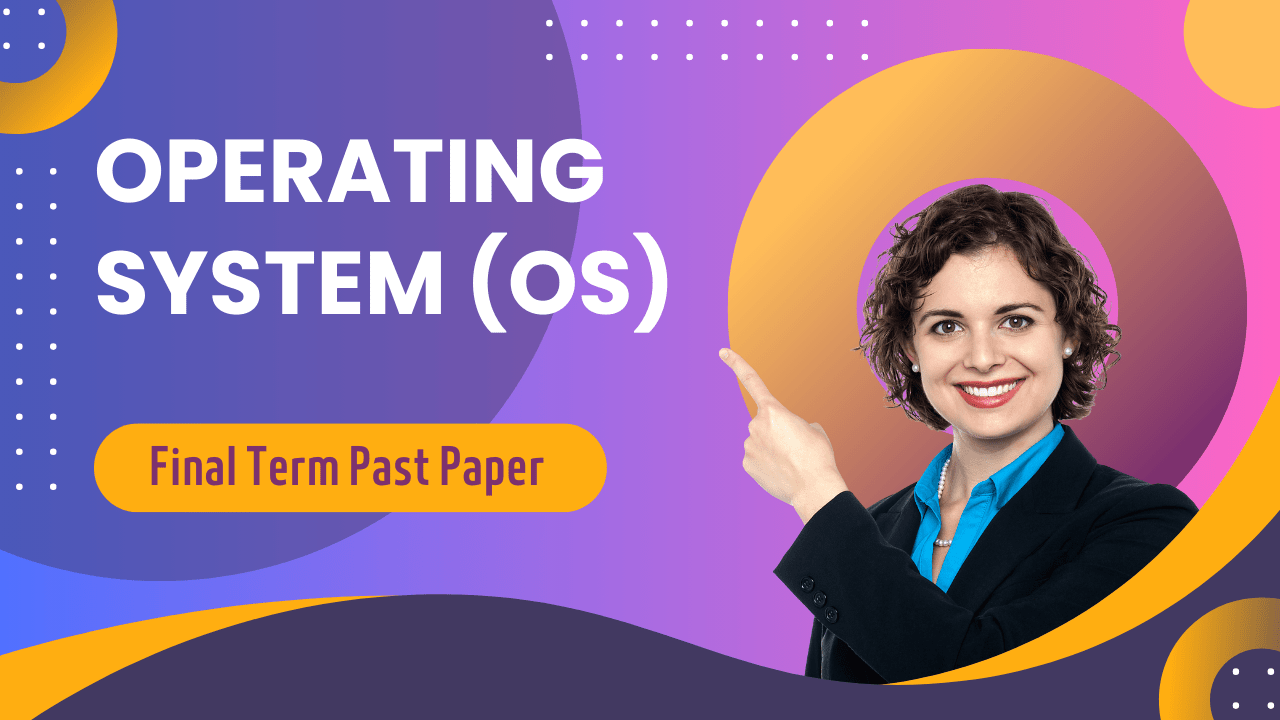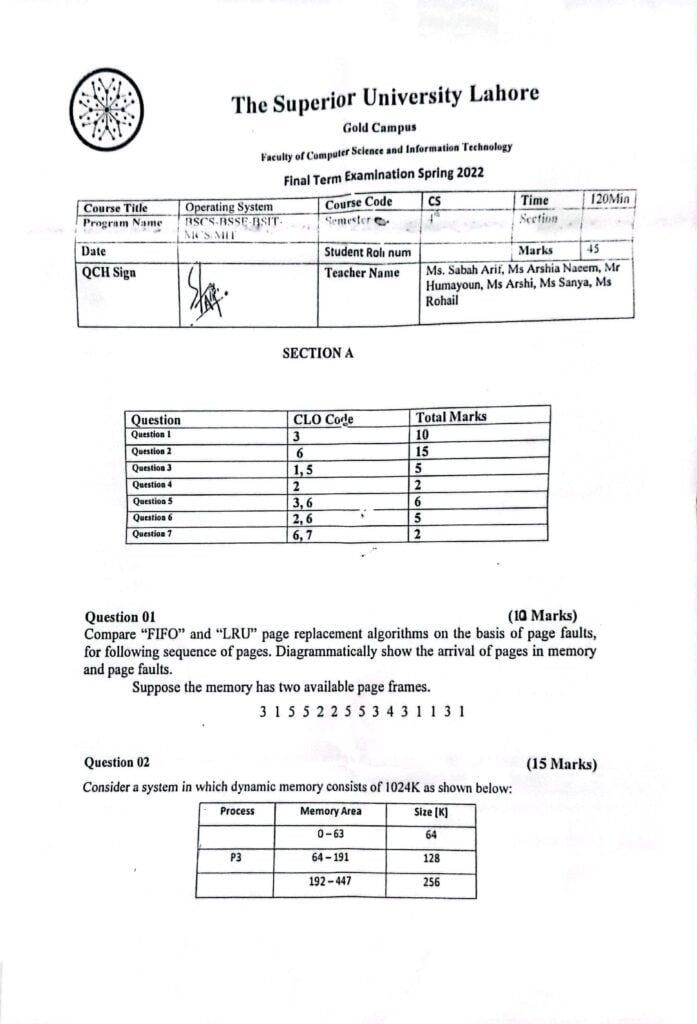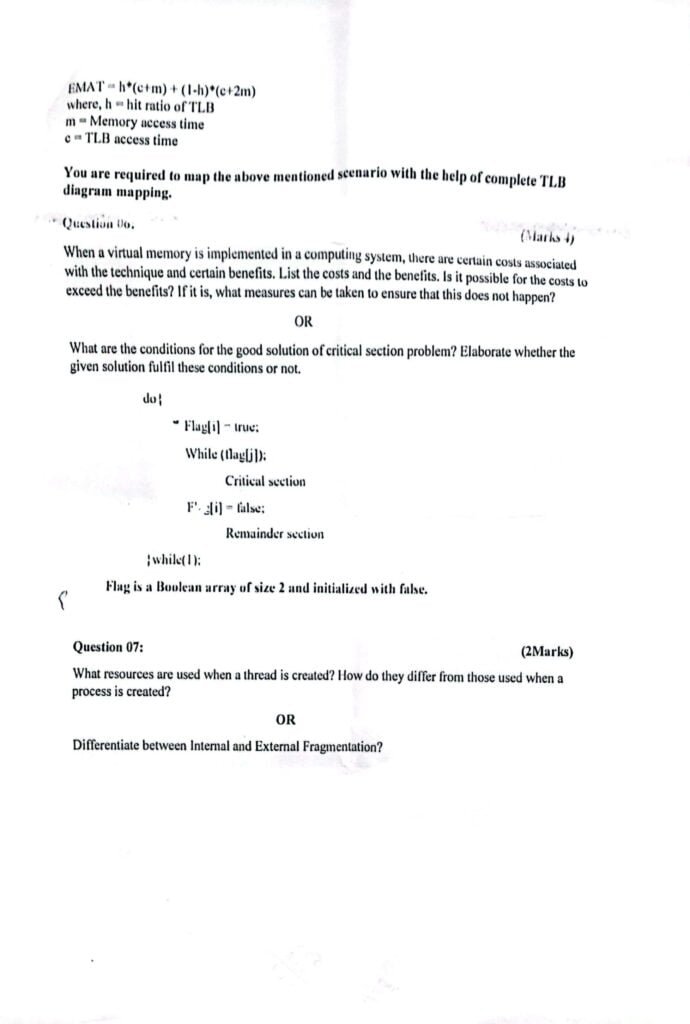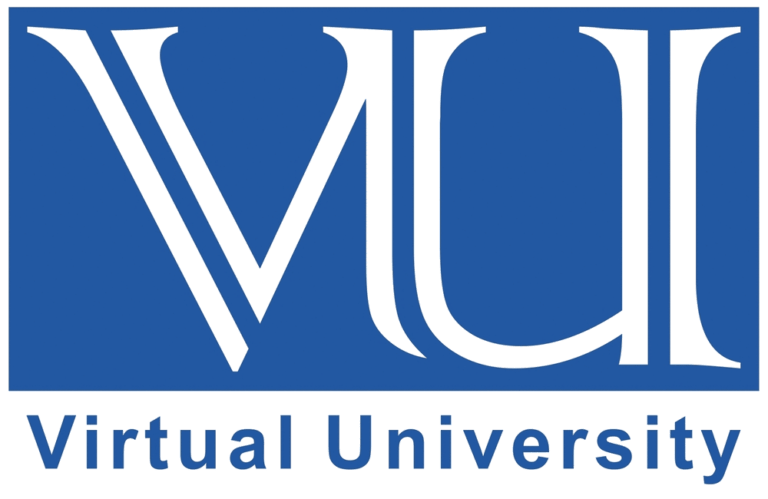Operating System | Final Term Past Paper | Superior University | VU Exam Guide

Table of Contents
Navigating Through the Operating System Final Term Past Paper: A Guide for Students
Are you preparing for your final semester exam in operating systems? Are you a little taken aback by the sheer number of subjects to cover? Don’t worry; we’re here to help you understand every detail of this important topic. As we go into the world of operating systems, let’s examine this topic’s contents, advantages, and reasons to invest your time and energy.
Introduction to Operating System
Any computing device’s core is its operating system (OS), which serves as a conduit between the hardware and software. It offers users with an interface through which to communicate with their devices, runs applications, and manages resources. Operating systems are available in a variety of forms, each meeting a different set of requirements and tastes. Examples of these include the widely used Windows and macOS and the adaptable Linux branches.
What You’ll Learn
As you progress through the course, you will gain an in-depth understanding of the fundamental principles of (OS) architecture, functionality, and management. Process management, memory management, file systems, security, and other subjects will be covered. Anyone entering the fields of computer science and information technology has to have a solid understanding of these foundational concepts.
Benefits of Studying Operating Systems
- Enhanced Problem-Solving Capabilities: Overcoming the various issues presented by operating systems calls for critical thinking and problem-solving skills. Gaining proficiency in this topic sharpens your analytical abilities and gets you ready for practical situations.
- Enhanced Knowledge of Computing Devices: You may better troubleshoot problems and maximize performance by gaining a deeper understanding of the devices you use on a regular basis by learning about the interactions between operating systems and hardware components.
- Gateway to Advanced Specializations: Working with operating systems gives you access to a wide range of professional opportunities, such as cybersecurity, software development, and system administration. It acts as a fundamental springboard for more in-depth coursework and specialties.
Current Operating Systems
In the modern digital world, we communicate using a wide variety of (OS). Windows is the market leader for desktop computers, whereas macOS is the operating system of choice for Apple products. Because it is open-source, Linux runs embedded equipment, servers, and even cellphones with unmatched customization and flexibility.
Why Study Operating Systems?
Gaining an understanding of (OSs) is essential for preparing for the digital age and not simply for passing exams. It is imperative to have a solid understanding of operating systems whether your career goal is to work as a software developer, network administrator, or cybersecurity specialist.
Value in the Job Market
People with a deep understanding of (OSs) are highly valued by employers in all sectors of the economy. Being knowledgeable on OS ideas greatly improves your employability and opens doors to profitable employment opportunities, regardless of whether you’re looking for work in government agencies, startups, or tech giants.
Download Your Past Papers
We’ve put up a list of (OS) final term previous papers that you may download from our website to help with your preparation. Make the most of these priceless tools to refine your comprehension, pinpoint your areas of weakness, and eventually earn the grades you merit.



Note: You can also checkout all Subject’s Final Term Past Papers of Superior University.
Remember that every notion you grasp as you set out to explore the complex world of (OSs) will get you one step closer to reaching your greatest potential in the huge field of technology. Accept the difficulties, take advantage of the chances, and allow your enthusiasm for learning drive you to achievement.
Happy studying!
 Virtual University
Virtual University
 Superior university
Superior university